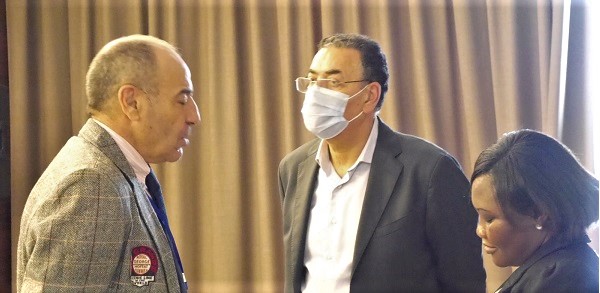
Conducive environment crucial for women in fisheries governance - ATLAFCO
African countries bordering the Atlantic Ocean have been urged to provide conducive conditions and frameworks to promote the active involvement of women in the fisheries sector.
The Executive Secretary of the Ministerial Conference on Fisheries Cooperation among African States Bordering the Atlantic Ocean (ATLAFCO), Mr Abdelouahed Benabbbou, indicated that while women formed about 50 per cent of the active population of those working in the fisheries sector, same could not be said in respect of their involvement in the governance of the sector.
Mr Benabbbou was speaking on women's involvement in the fisheries sector at the ongoing ATLAFCO conference in Morocco.
The conference, dubbed: "Artisanal Fisheries and Aquaculture, Major Components of Inclusive Socio-economic Development", is in line with the declaration of 2022 as the International Year of Artisanal Fisheries and Aquaculture (IYAFA) in 2017.
It is being attended by representatives from 18 ATLAFCO member countries.
Challenges
Mr Benabbbou said because women were not heard, they were plagued with several challenges, key among them being the fact that the conditions under which women in the sector worked remained insanitary in most member countries.
That, he said, needed to be significantly improved upon.
Such enhanced conditions of work, he said, would be in line with International Labour Organisation accepted conditions.
Many women who worked in the artisanal fisheries sector, he observed, also lacked access to credit and the needed training required to expand their businesses.
These, among other factors, such as the lack of adequate infrastructure and structured market systems, he said, often left these women in a cycle of poverty.
Initiatives
Mr Benabbbou stated that ATLAFCO, for its part, was working with a network of women working in the fisheries sector in its member countries and providing them with support through capacity-building workshops to strengthen their ability to advocate and negotiate for enhanced opportunities and support from relevant authorities.
He said ATLAFCO was also supporting the women networks with training in Information and Communications Technology within their work environment to enable them to deploy such knowledge to enhance their businesses.
While acknowledging the fact that the issues in the various ATLAFCO countries were improving, he said more could be done to promote women’s inclusion in the fisheries sector.
Role of women
Making a presentation on the place of women in the fisheries sector on member countries, an official of ATLAFCO, Mrs Hayat Assara, said women played very essential roles in sustaining the sector, which had a ripple effect in reducing poverty in families and communities.
She indicated that although women played critical roles in fisheries, especially in the processing and marketing of fish, the voices that dictated the prices in the sector still largely remained with the "strong men", often to the detriment of the women.
The President of the African Confederation of Artisanal Fishing Organisations, Mr Gueye Gaoussou, said taboos and cultural practices continued to mitigate against the full potential of women's development in the fisheries sector and called for efforts to ensure that women had their place in the fisheries governance.
The Head of the Service at the Directorate of Marine Fisheries in Morocco, Mr Kandil, said there should be a commitment to consciously give women a voice in fisheries management.
He said the fact that about 25 per cent of fish was lost post-harvest was worrying and called for improved infrastructure to support women in the proper processing and marketing of fish to enhance food security.
